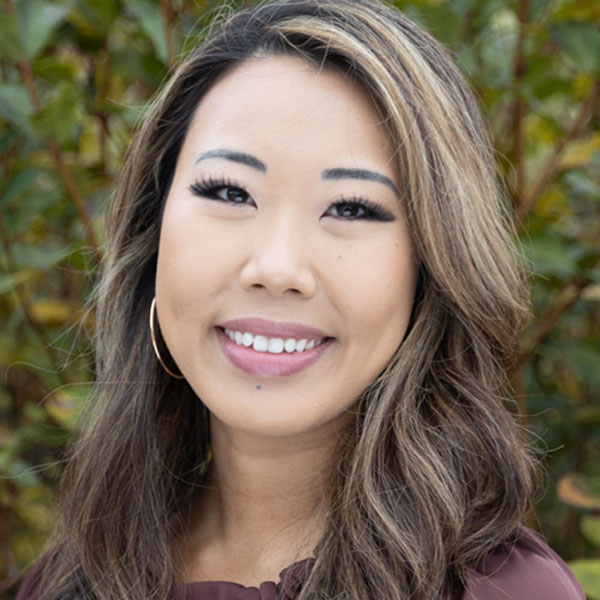The famed Oxford don and professor C. S. Lewis once wrote that friendship “… is born at the moment when one man says to another ‘What! You too? I thought that no one but myself…’” Having a shared experience with someone else helps to lighten the sense of isolation and loneliness that can often descend when you’re struggling with something. The presence of another who can say “Me too!” makes a world of difference, such as takes place in group counseling activities.
When you’re struggling with something like divorce, depression, anxiety, body image issues, substance abuse, grief, an eating disorder, relationship issues, or any other challenge, it can feel like you’re all alone in the struggle. One way of dealing with it is to go for counseling. In particular, group counseling is an avenue of getting help that will move you toward better mental, emotional, and physical health.
Group Counseling and Its Goals
 Group counseling is a shared space for people with similar mental health and other concerns to have those addressed. The group can have 5-15 people in it and will meet once or twice per week for an hour to an hour and a half. The group is led by 1-2 licensed mental health professionals with special training in the issues shared by group members. For instance, a group addressing alcohol use disorder may be led by a certified drug and alcohol counselor.
Group counseling is a shared space for people with similar mental health and other concerns to have those addressed. The group can have 5-15 people in it and will meet once or twice per week for an hour to an hour and a half. The group is led by 1-2 licensed mental health professionals with special training in the issues shared by group members. For instance, a group addressing alcohol use disorder may be led by a certified drug and alcohol counselor.
Group counseling is an effective platform for mental health care as it provides one with a safe place to discuss their emotions, ideas, and potential actions without fear of judgment. The group members take responsibility for what they say to each other, and they invest in their own and each other’s growth. Group counseling promotes an empathetic environment in which people can be challenged and grow.
Some of the goals of group counseling include providing support to other group members, promoting self-improvement, developing social skills and gaining a voice, nurturing an understanding of your behavior and internal motivations, creating a healthy mutual awareness, cultivating self-awareness, instilling hope for one’s healing journey, and strengthening responsibility for oneself.
Group counseling is thus a helpful way to receive the help you need.
Effective Group Counseling Activities
There are several effective group counseling activities that one can undertake as part of the process of healing, growth, and recovery. These activities typically take place in cognitive behavioral therapy (CBT) groups as well as skill groups. CBT is a form of talk therapy that pays close attention to changing negative thought patterns to healthy and positive ones to cultivate better decision-making and healthier behaviors.
Below are some effective group counseling activities that can help in the therapeutic process.
About your partner
 This activity can be used in couples counseling groups. Each couple will have a few categories of questions they can answer about their spouse, and it’s a great way for them to remember their history together as well as their emotional connection. The couple can take turns answering questions such as how their partner describes their ideal future life, or what their partner’s day looks like from start to finish. If they’re comfortable with it, they can share it with the group.
This activity can be used in couples counseling groups. Each couple will have a few categories of questions they can answer about their spouse, and it’s a great way for them to remember their history together as well as their emotional connection. The couple can take turns answering questions such as how their partner describes their ideal future life, or what their partner’s day looks like from start to finish. If they’re comfortable with it, they can share it with the group.
Two truths and a lie
This can be a great icebreaker that allows a group to know one another better but in an interesting way. Each group member is given time to think about interesting aspects of their lives, then they write down three things about themselves, two of them true, and the third false. The other group members can guess which is which.
Cooking
Interacting with strangers can be intimidating. An activity like cooking which engages people’s hands, imagination, and senses can be a great way for members to get comfortable with one another. This can be combined with questions for discussion.
Strength-finding
This activity helps group participants recognize their strengths and the strengths of those in the group. These may be psychological or character strengths. The group is encouraged to share success stories, and group members can name any strengths they discern from those stories on a worksheet provided. This activity helps develop self-appreciation and an appreciation of others.
Checking in
Not every group member will jump at the chance to share how their week has been, or what they’ve learned since the last session. Additionally, some group members can monopolize the space if they’re allowed to. Check-in questions can be simple and aimed at one aspect of life, or more elaborate depending on how much time there is. They provide everyone a chance to share and connect.
Goal setting and vision boards
Each group needs a sense of direction, and having a plan of action is helpful in one’s recovery from depression, anxiety, substance use disorders, or other mental health issues. Part of the planning can be represented through a vision board which projects one’s desired future.
Fascinating facts
Each person can write a fascinating or fun fact about themselves on a piece of paper without adding their name. The paper is put in a bowl or other container, then each group member can pull one out, read it to the group, and then the group can guess who the fact is about. This is another way for the group to get to know one another.
Ideas for self-care
 Whatever challenge you’re facing, you must take the time and make the effort to take care of yourself. Your mental and physical health can improve greatly from implementing a few effective ideas for self-care, especially if one is in the habit of looking after the needs of others before their own.
Whatever challenge you’re facing, you must take the time and make the effort to take care of yourself. Your mental and physical health can improve greatly from implementing a few effective ideas for self-care, especially if one is in the habit of looking after the needs of others before their own.
Each group member can contribute an idea for self-care to the group, then they can pick one idea they want to implement. They must have a plan for implementing it, and at the next session, part of the checking-in process will include how they implemented the self-care idea. This follow-through and accountability can be extended to other areas of life.
Share some music
Music can touch us profoundly. It can trigger memories, evoke deep emotions, and even inspire us. Each group member can bring some music, a song whose lyrics or arrangement represents them and their life, or that invokes joy and a desire to change. The group can discuss the song or music shared.
Resilience
Group members can draw, color, or paint an image of a creature or anything else in nature that can survive in a harsh environment, whether that’s a flower in a concrete sidewalk, a fish living at the bottom of the ocean, or an animal in the desert. This creates a visual reminder of surviving and thriving in hard circumstances.
Building a support system
 To get better, each person needs a support system. This can be composed of friends, family, or other loved ones on whom they can rely on their journey. An effective support system will nurture them on the road to recovery instead of hindering them. As such, the people in one’s life that are connected to the issue, or that undermine your well-being are not helpful candidates for a support system.
To get better, each person needs a support system. This can be composed of friends, family, or other loved ones on whom they can rely on their journey. An effective support system will nurture them on the road to recovery instead of hindering them. As such, the people in one’s life that are connected to the issue, or that undermine your well-being are not helpful candidates for a support system.
The group can be a helpful place to review one’s potential support system and get help in cultivating a good support system.
These and many other group activities can help you and the group you’re in to spark your imagination, get to know one another better, build trust within the group, nurture self-understanding, cultivate empathy, and motivate you toward meeting your goals.
Learn more about group counseling
Group counseling has many potential benefits, but the main thing is that it can help you overcome your challenges. You don’t have to struggle alone. With the guidance of a wise counselor and alongside peers who struggle with the same thing, you can move toward the wholeness and healing that the Lord desires for you. Reach out to inquire about group counseling and begin moving toward your well-being today.
“Gather”, Courtesy of Papaioannou Kostas, Unsplash.com, CC0 License; “Beach Party”, Courtesy of Tim Marshall, Unsplash.com, CC0 License; “Greeting the Sun”, Courtesy of Chang Duong, Unsplash.com, CC0 License; “Picnic on the Rock”, Courtesy of Arthur Poulin, Unsplash.com, CC0 License



